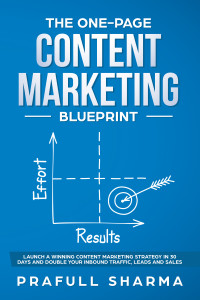Navigating Data Privacy in the Age of AI: Challenges and Strategies
Marketing today is no longer just campaigns and clicks; it’s trust. With customer data driving decisions, brands cannot treat privacy risks as a secondary concern. Every interaction, every personalized recommendation, depends on data, but its responsible use is what differentiates a brand.
For marketers, data privacy is now a priority in keeping loyal customers. If marketers do not get this right, they risk ruining their reputation faster than a failed campaign. By understanding how to manage data privacy, marketers help create meaningful experiences that build trust.
Whether you are seeking to enhance your digital skills with the best SEO course or rethinking how your team uses customer data, the common link should be an ethical, relationship-focused marketing approach that prioritizes ethics over conversion.
The Intersection of AI and Data Privacy in Marketing
For marketers, Artificial Intelligence (AI) has completely transformed their relationship with their audiences, enabling brands to achieve a level of personalization in messages, offers, and experiences that simply did not exist a few years ago. However, with that level of personalization comes the burden of responsibility for the marketers and their brands; mismanaging or misusing data is serious business and can ruin a brand’s reputation with its audience.
Today’s consumers are increasingly aware of and actively involved in monitoring how their personal information is collected, stored, and used by brands in their marketing campaigns. Many consumers are apprehensive about sharing personal and sensitive information with brands and will stop purchasing from them to disengage and protect their privacy.
The task for marketers is simple but essential: be responsible with data. There are many exciting opportunities to innovate and personalize within this new technology and landscape, but none of which will be valuable if a brand loses the trust of its consumers. Brands must transparently explain what data is being collected, how it is being used, and give consumers agency over their personal information to protect and nurture relationships with their audiences.
Navigating the Global Regulatory Maze
United States
In the U.S., 17 states now have their own privacy laws, which means compliance is no longer just a California issue. The American Privacy Rights Act and other privacy regulations introduce stricter limits on how companies can collect and use data, and enforcement is becoming more serious.
Europe
Europe continues to lead in data privacy with GDPR (General Data Protection Regulation) and the EU AI Act, which require companies to be transparent about how they handle customer information. Spain has recently reported that it imposed hefty fines on businesses that use AI-generated content without proper labeling, showcasing the impact of AI regulation on business practices.
India
India is moving toward stricter privacy standards with the introduction of the Personal Data Protection Bill. The goal of the legislation is to regulate the use of personal data, including data utilized in AI applications, and to align India’s rules with other international regulations.
Key Takeaway
Unless you are a marketer or have worked in marketing, you are probably not aware of the other regional regulations. As a marketer, one thing is for sure: compliance is key. It is not about getting fined. Compliance builds trust with your customers. And moving forward with that, your marketing will be able to operate across borders.
Compliance Challenges for Marketers
Consent management
It is increasingly difficult for clients to give clear, informed consent, especially with the advances in marketing technologies. Customers want to know what data is being collected and how it is being used. Some practices, like requiring the user to accept data collection to access the service, have resulted in consent fines and public criticism, showing how sensitive consent is nowadays.
Data Minimization
Limiting data collected to what is really necessary is difficult when marketing systems are based on a big dataset. Marketers are compelled to make careful decisions to not “overcollect” information above what is actually needed.
Transparency and explainability
Many marketing systems work in ways that are not easy to explain to customers. A brand risks losing trust if it cannot clearly describe how the data is used.
Third-Party Risk
When sharing customer data with partners or service providers, additional risk is involved. Marketers must ensure that anyone they work with operates under the same privacy protection principles.
Cross-Border Data Transfers
Moving data from country to country is complex since each region, like the EU, takes its own approach to privacy. Marketers must be aware of local laws and keep them in mind for international campaigns, as well as the implications for any cross-border data transfers.
Building a Privacy-First Marketing Strategy
Data Governance Frameworks
Marketers need clean rules on the collection, handling, and sharing of customer data. Once marketers decide the right collection and access rules, they ought to review these practices periodically to ensure they are being implemented correctly.
Privacy-Enhancing Technologies
Privacy-enhancing technologies for data protection, such as encryption and data anonymization, allow marketers to mask customer identities. This provides marketers with the freedom to use customer data without compromising privacy.
AI Ethics Committees
AI ethics committees help marketers use AI ethically by having a small group review how AI was used in campaigns to verify whether automated decision-making can undermine customer trust or privacy expectations.
Ongoing Monitoring
Regular monitoring of files and campaigns allows organizations to flag privacy concerns quickly. Ongoing monitoring will enable companies to ensure they are following regulations and identify any potential mistakes.
Vendor Management
When customer data is shared with 3rd party partners, marketers need to ensure that these partners are following the same framework when it comes to privacy and compliance measures. Regular monitoring and a clear agreement can help companies reduce the chances of problems or a data breach.
Risk Management Associated with Shadow AI
When employees use AI tools without company oversight, and often without consent, they may violate the company’s compliance, data privacy, or security policies. These tools are used without any supervision, and therefore, the organization does not know what data has been collected or how it has been processed, leading to unintended risk.
To mitigate this risk, organizations should create a culture where the use of AI is seamless with core business practices. Equipping employees with training and insights into the risks of AI tools will better enable them to grasp the principles of responsible AI technologies.
When Shadow AI is managed, it doesn’t have to be a risk for organizations. Organizations can monitor and control their use and utilize the innovation that Shadow AI will provide. If handled the right way, organizations can turn potential risks into a competitive advantage, while still maintaining trust and adherence to compliance.
Conclusion
Data privacy and security aren’t something companies can treat as a box to tick anymore. It has become a part of how brands build relationships and grow over time. Marketers who ignore privacy concerns risk damaging the trust they’ve worked hard to earn.
The way forward is simple but not always easy. Organizations need to clearly understand the rules around data, keep up with changes, comply with regulations, and implement proper practices. Doing this helps them navigate data privacy challenges without the unnecessary risks associated with AI technologies.
At the same time, using AI responsibly and managing data carefully helps build trust with customers. When organizations safeguard people’s information, they’re more likely to build lasting brand loyalty. Moreover, embedding a culture of privacy-first thinking into every team and campaign can turn compliance into a competitive advantage. Companies that proactively communicate privacy initiatives and empower consumers with choice will differentiate themselves in a market where trust is increasingly rare. Ultimately, ethical data practices are not just risk mitigation; they are a strategic lever for long-term growth and brand credibility.
Share This Story
2 Comments
Leave A Comment
Get the latest growth ideas, strategies, and best practices delivered to your inbox.
Quick read that helps 7000+ subscribers.










This was beautiful Admin. Thank you for your reflections.
Loved the tips on writing posts that attract comments, especially the emphasis on lists and tutorials. While reviewing SaaS products, we’ve seen that user input and engagement can provide valuable perspectives for both creators and readers.